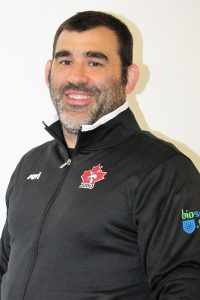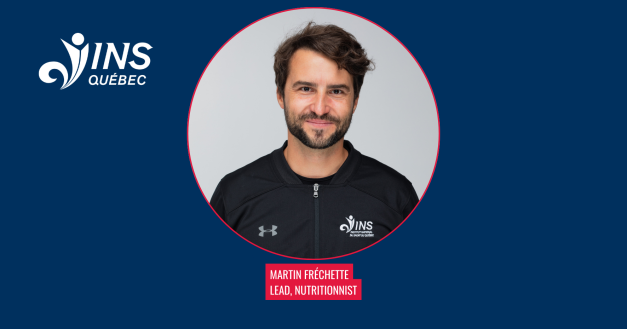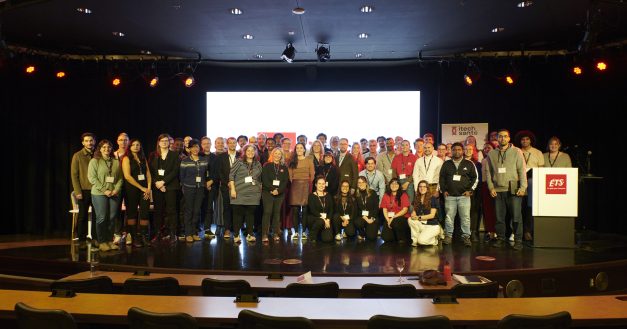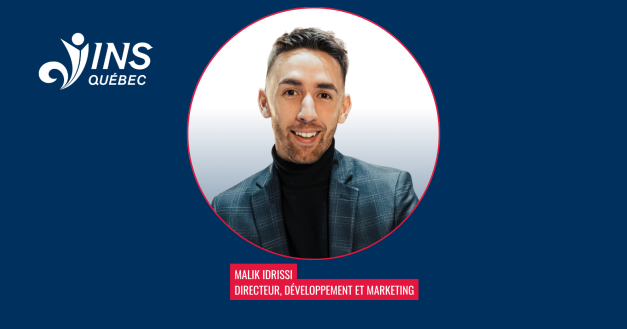National Coaches Week: Marie-Hélène Chisholm’s Two Remarkable Coaches

NATIONAL COACHES WEEK: MARIE-HÉLÈNE CHISHOLM’S TWO REMARKABLE COACHES
As part of National Coaches Week, INS Québec has asked coaches to introduce us to the mentors and coaches who in turn have inspired and influenced them.
Steve Trudel, the passionate coach at the start of a career; Nicolas Gill, the forward-looking Olympic coach
Marie-Hélène Chisholm has had a distinguished career as an athlete in judo, culminating in a fifth place finish at the Olympic Games in Athens.
From 2008 to 2013, Marie-Hélène coached at the provincial and national levels, and is now a High Performance Manager at Judo Canada.
She identified two prominent coaches who have influenced her journey both as an athlete and a coach.
Her first coach, the role model
Steve Trudel, her first coach, inspired her passion for judo and her desire to compete and push herself. “I liked judo because of him. He was an invaluable role model for me as a coach. His way of working with us—the younger ones—along with his approachability and openness were crucial for me. When I started coaching, I told myself that I wanted to be like that with athletes,” says Marie-Hélène.
It was on the cusp of adulthood that the judoka first began teaching classes to young people. Even though the experience was a positive one, the demands of her career as an international athlete meant that she couldn’t carry on.
A career-changing injury
In 2007, while preparing for the 2008 Olympic Games, a knee injury forced her to take a break. Her coach Nicolas Gill encouraged her to start coaching classes. “Even though I wasn’t really thinking about the end of my career because I was so sure that I would return to competing, I think Nicolas suspected that this injury could potentially end my athletic career,” says Marie-Hélène, who still holds the best Canadian result at an Olympic Games for a female judo athlete.
She began attending a few coaching training courses without really considering a career as a high performance coach. “It was a way for me to prepare for after my career as an athlete. I hadn’t thought about it too much until then.” »
“As he’d also been an athlete, Nicolas knew that the knowledge gained when training as a coach could help me understand both sides of the medal if I returned to competing. Sometimes when you’re an athlete, you don’t understand why your coach is acting or reacting in a certain way or saying a certain thing. When you start coaching, you understand a little bit more, and when you become a coach you understand even more still,” she says with a smile. “This is the kind of training that helps you develop as a person.” »
A coaching career after top-level sport
There was to be no return to competing. “In my head, I still had several years left on the tatami, but the injury hastened the end of my career,” she says. She retired from competing in 2008. The 29-year-old athlete then started working full-time on her coaching training.
She then became provincial coach for Judo Québec before becoming Assistant National Coach, a role she occupied until 2013.
New duties that draw on the whole of her career
She is now High Performance Manager at Judo Canada and sees the role as the logical next step of her career. “I work with coaches and I support athletes. At times, I draw connections between the coach and the athlete. My experience helps me to understand everyone’s perspective.” »
Her first coach Steve Trudel inspired her passion for judo and her Olympic coach Nicolas Gill encouraged her to attend training to turn her passion into her career.
Thank you, Steve Trudel.
Thank you, Nicolas Gill.

#ThanksCoach


